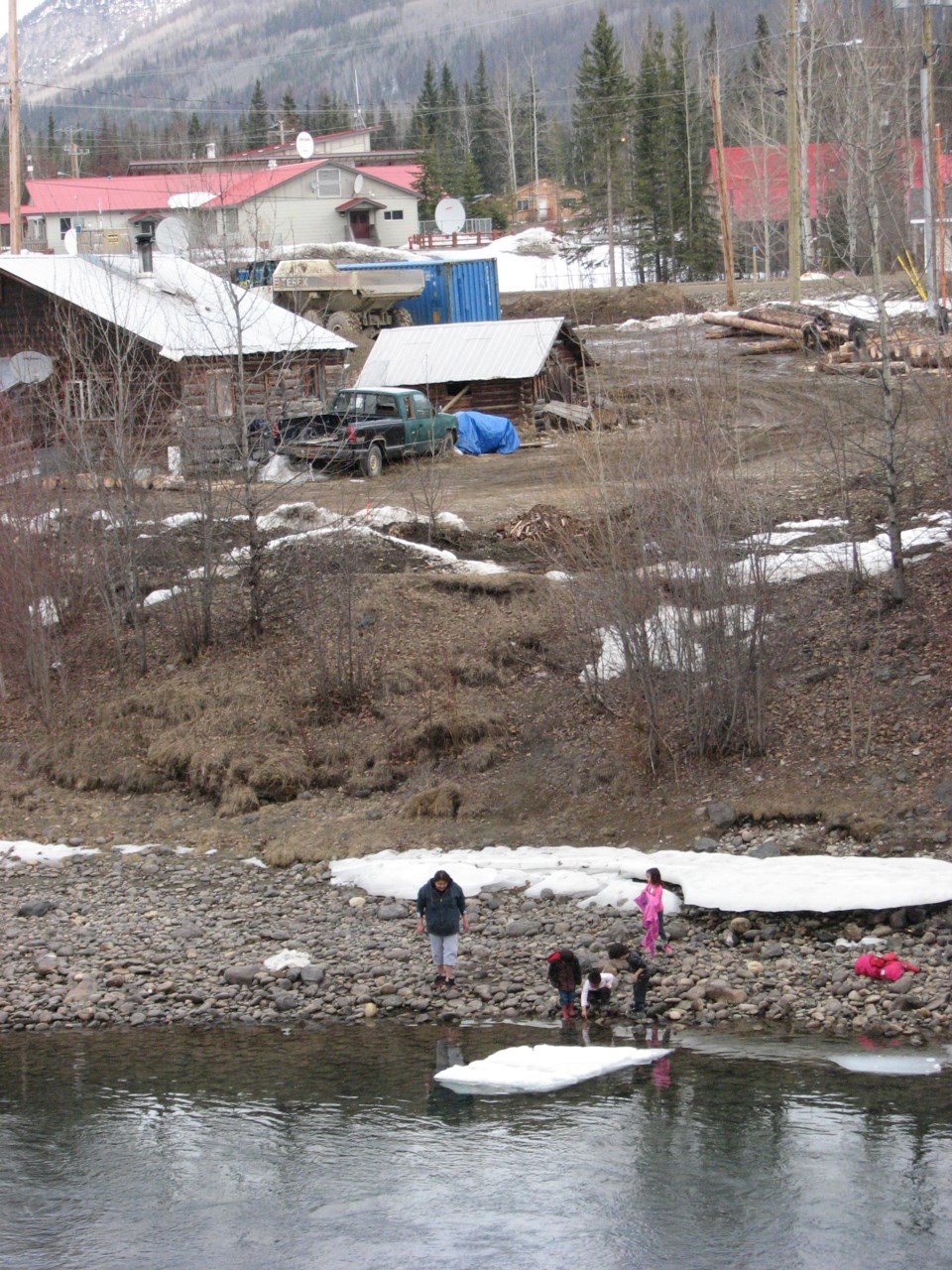KWADACHA - Kwadacha chief Donny Van Somer can't wait for the day when the diesel generator that supplies power to his village is permanently silenced.
Van Somer lives in the remote First Nations settlement formerly known as Fort Ware and looks forward to the day he can buy locally-produced produce grown in village greenhouses heated year-round by a renewable source of energy.
By next year, Van Somer's dream of energy self-sufficiency will start to be realized if a bioenergy project being planned for Kwadacha clears the final hurdle.
"Our goal is to go green and we want to be one of the first communities in the province to be energy self-sufficient, not relying on fossil fuel," said Van Somer. "It's not only an air pollutant, it's a noise pollutant. We've got lots of dead timber here and lots of biomass. Because of where we're at, it just makes sense."
Similar to the district energy system in Prince George, which uses heat from the combustion of wood waste to produce hot water that's pumped into public buildings downtown, excess hot water from the Kwadacha power plant heat would heat the school, community hall, general store and the newly-built health clinic/band administration office.
"One of our goals with that heat is to build a greenhouse and have it heated so we can create vegetables and sell them to our people," said Van Somer.
"We haven't had diesel-generated power here that long, maybe 15 years. The school and some of the major buildings were powered [several decades ago] but homes weren't, so it was a bit of challenge keeping fresh produce and meats. Right now we get vegetables from Prince George or Edmonton, and by the time they get here they're already two or three days old, so the shelf life is very short."
Fed by wood chips, the Kwadacha biomass power generator would be introduced in three stages. The first phase will be to install a heat-only woody biomass generator close to the town. The system being recommended is already proven in more than 150 locations in Europe but it would be the first of its kind in North America. Because of its small size, it would not be a load-following system and would not be capable of responding to peak power demands.
If all goes according to plan, it should be in place by the spring of 2014. The current BC Hydro diesel generator, located cross the Finlay River from the village, would still be used as a back-up system.
The second phase would be a load-following generator large enough to meet all the village power needs at any time of day. Developing that unit will involve an extended trial at a yet-to-be announced forest products company in Prince George to determine the system's reliability and load-following capabilities.
The final phase will be to install the load-following electicity-generating system in Kwadacha, which could also provide sufficient heat for residential use.
"Our objective and the community's objective as well is to come up with a solution that many remote communities can consider,"said Michael Weedon, executive director of the B.C. Bioenergy Network developing the project. "We wanted to pick a remote community that was off-grid [with a project] that would be suitable for many communities. I'm sure Tsay Keh, a close-by neighbour, would be interested."
Fuelling the village generator is a major expense for Kwadacha and its 325 residents. In 2011, the generator burned 953,000 litres of diesel for power and electric baseboard heating. The village used an additional 170,000 litres of propane annually to heat its major buildings. Using diesel, electrical power now costs Kwadacha residents 65 cents per kilowatt hour. The bioenergy generator is expected to bring that cost down to 42 cents per kilowatt hour.
"Their goal was to replace the diesel and there's been a lot of hard work put in by the community and our organization, and the two councils [First Nations Mining Council and First Nations Forest Council]," said Weedon. "We've gone through a very methodical process, but we're near the end of the journey ."
Now three years in the planning stage, the Kwadacha biomass project will not only produce heat and electricity but it will also create jobs. Workers will be required to harvest and chip trees for chipping and to maintain operation of the power plant. The plant will also help reduce the threat of forest fires. The forests surrounding the village were hard-hit by the pine beetle epidemic and cutting down those dead trees will create a fire buffer zone.
Project costs are estimated to be about $6 million and funding arrangements have yet to be finalized. On Tuesday, B.C. Bioenergy will submit its final proposal for the energy purchase agreement with B.C. Hydro, then will need the approval of the B.C. Utilities Commission.
The Kwadacha project is one of 19 that have been developed by the B.C. Bioenergy Network, an industry-led, provincially-funded initiative that began with a $25 million grant in March 2008. The purpose of B.C. Bioenergy is to develop world-class bioenergy capability in the province using renewable sources to produce heat and electricity and develop green sources of solid, liquid and gaseous types of fuel.



